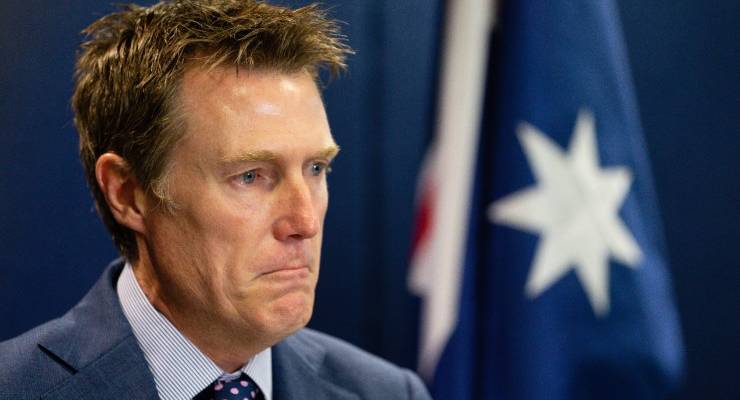
Christian Porter could be a lame duck minister.
Dogged by historic rape allegations (which he denies) and entrenched in the early stages of a defamation battle with the ABC, Porter was moved on to the portfolio of industry, science and technology last week.
But he now faces another challenge: stakeholders are furious about his appointment and many don’t want to work with him. There are fears that Porter’s appointment could deter women in tech from engaging with the government. And there’s a broader feeling that the former attorney-general’s reshuffle is a sign of the government’s deep, historical ambivalence to the tech sector.
‘No one is cheering‘
Porter’s appointment has frustrated the sector in a couple of ways. Firstly, it symbolises how little thought the government gives to innovation, science and technology. Former venture capitalist and business commentator Sandy Plunkett told Crikey the appointment was unsurprising because people in the industry are long used to indifference from the government — and a string of mediocre, temporary appointments.
“It’s safe to say no one is cheering this appointment,” she said.
Porter will be the fifth person to hold the portfolio in the last five years. His predecessor, new Home Affairs Minister Karen Andrews, remained fairly quiet.
“If you look consistently at successive governments and how they deal with tech and tech-based industries, the only conclusion you can come to is they really don’t care,” Plunkett said.
And in Porter’s case, his position seems like a strategic attempt to keep the embattled minister away from the glare and the conflicts of the attorney-general’s portfolio.
Will anyone work with him?
While Plunkett says most in the sector responded to Porter’s appointment with resigned frustration, the official reaction from major science and technology organisations was one of obligatory deference.
The Australian Information Industry Association’s chief executive Ron Gauci praised the “continued prioritisation of technology”, and the Australian Computer Society diplomatically welcomed the leadership change. But beneath the surface there’s been considerable anger within those organisations, particularly from women, about their apparent support for Porter’s appointment.
Some of that anger seemed to spill out into the open when the Australian Academy of Science last week apologised for a “poorly-worded tweet” welcoming Porter to his new role. “We are deeply aware of the challenging circumstances created by the reshuffle,” the Academy wrote in response to backlash on social media.
But that incident is a sign of the difficulties Porter is set to face in his new role. Speaking to Crikey’s sister publication Smart Company last week, one start-up founder suggested that “an algorithm would have selected a better new minister”.
Microsoft’s head of start-ups Emily Rich recently said Porter’s appointment will deter women from meeting the minister and engaging with the government. That’s not a great sign in a sector where women make up about 20% of the workforce.
For a sector that, as Plunkett says, already feels like “an orphan in Australian political strategy”, the choice of a deeply controversial minister with an incentive to stay quiet could further widen the gap between the industry and government.
All up, it’s a smart tactic to keep Porter out of the headlines. But it’s a pretty rough deal for Australia’s science and technology sector — especially women in the industry.








Crikey encourages robust conversations on our website. However, we’re a small team, so sometimes we have to reluctantly turn comments off due to legal risk. Thanks for your understanding and in the meantime, have a read of our moderation guidelines.